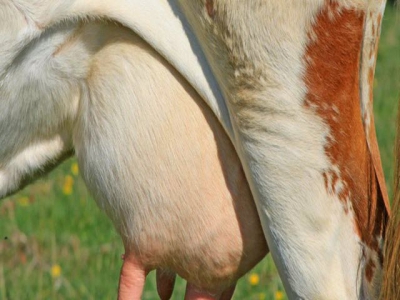Study to take new approach to mastitis

Project will explore how presence and function of bacteria in mammary gland changes during first six weeks after birth and how those changes affect whether mastitis develops.
A University of Idaho study is planning a new approach to mastitis, a major human and animal disease problem that damages dairy industry productivity and causes discomfort for breastfeeding mothers.
Mastitis is inflammation of the mammary gland, and the bacterial-related disease frustrates mothers who want to breastfeed their babies while causing millions in annual financial losses for dairies
For the most part, bacteria perform useful functions in the body, including helping with digestion and producing molecules to support immune function, the researchers said.
University of Idaho nutritionist Michelle “Shelley” McGuire and lactation physiologist and dairy researcher Mark McGuire will co-lead a $2.4 million project funded by the National Institutes of Health (NIH) to explore the cause of mastitis in women and cows.
Shelley McGuire is the newly hired director and professor of the University of Idaho’s Margaret Ritchie School of Family & Consumer Sciences. Mark McGuire is a professor in the the university's department of animal and veterinary science and director of the Idaho Agricultural Experiment Station. The McGuires are married and have collaborated on similar projects for more than two decades.
The McGuires and their colleagues in the five-year NIH project want to know how changes in the community of bacteria normally found in milk affect mastitis. The project will explore how the presence and function of bacteria in the mammary gland changes during the first six weeks after birth and how those changes affect whether mastitis develops.
The McGuires collaborated with University of Idaho doctoral student Katherine Hunt on a novel study of both beneficial and disease-causing bacteria in milk that showed that some bacteria in human milk played no clear role in the health of the mother or baby, according to the university.
It became an important step in learning more about milk’s place in the human microbiome, which refers to the universe of bacteria found in human bodies.
The growing ability to gather and analyze huge amounts of genetic data will help show the microbial communities in detail. The team will work with the Pacific Northwest National Laboratory to identify those communities and what they are doing. The University of Idaho’s expertise in analyzing molecular data and its expertise in dairy research make the study possible, Shelley McGuire said.
The researchers now believe the presence of various bacteria like Staphylococcus aureus is not the only factor responsible for mastitis, the university announced. Rather, they said an imbalance in the mix of microbes, which normally includes the staphylococcus species, found in mammary glands is responsible.
Alternatively, it might be what compounds the microbes produce. The study will explore whether antibiotic use — the traditional medical approach to mastitis — sets up women and cows for a higher risk of mastitis. Further, it may be a genetic or environmental issue that leads to the disease, the researchers said.
Related news
 New app validated for conducting electrocardiograms on horses
New app validated for conducting electrocardiograms on horses Telemedicine and mobile phone apps may be used as tools for monitoring horse health and conducting diagnostic testing.
 Dairy system model to examine complete production cycle
Dairy system model to examine complete production cycle A new dairy system model would trace feed influence through the complete production cycle in an effort to improve system understanding, efficiency, environment
 New computer model helps producers predict wheat forage success
New computer model helps producers predict wheat forage success Model can simulate thousands of scenarios in minutes or hours compared to decades of field trials.